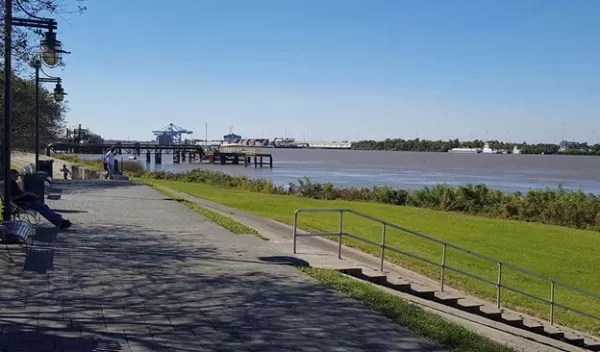
Engineering the Mississippi River has kept carbon out of the atmosphere, new study reveals
A new study co-authored by a Tulane University geoscientist shows that human efforts to tame the Mississippi River may have had an unintended positive effect: more rapid transport of carbon to the ocean.
The U.S. National Science Foundation-funded research, published in AGU Advances, describes the work of scientists who set out to learn more about the fate of organic carbon transported in large quantities by the Mississippi. Organic carbon is mainly derived from plant remains, soils and rocks throughout the drainage basin of the river, which covers about 40% of the United States.
"We estimate that over the past century, the amount of organic carbon lost to the atmosphere during Mississippi River transport to the Gulf of Mexico has been reduced by at least 2.5 billion pounds [more than one million metric tons] per year," said co-author Torbjörn Törnqvist of Tulane.
The researchers used a novel approach by measuring not only the age of carbon that has accumulated in Mississippi Delta sediments, but also the time of deposition of the sediment itself. They found that around 1,000 years ago, the carbon was generally more than 5,000 years older than the sediment in which it occurred.
"This shows that during prehistoric times, organic carbon took a much longer time to make it down to the mouth of the river, and a lot of it was lost along the way," Törnqvist said. "The main reason that this has dramatically changed is that we have built levees, which prevent flooding and the dispersal of organic matter onto the vast floodplain where much of it would degrade and return back to the atmosphere."
The question is whether the carbon is now buried at higher rates in the Gulf of Mexico than in the past. In February 2020, Törnqvist participated in an oceanographic cruise off the Louisiana coast that aimed to better understand what happens to organic carbon from the Mississippi River once it enters the ocean.
The study has potential implications for our understanding of the global carbon cycle, considering the rapid changes in other large rivers -- such as those in the tropics -- that transport significant amounts of carbon.


